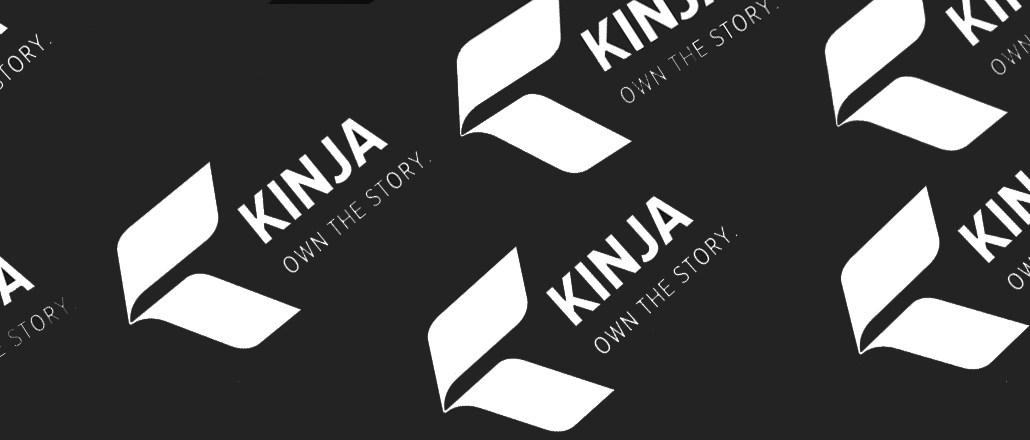Secure your place at the Digiday Media Buying Summit in Nashville, March 2-4
Gawker’s Kinja retreat is more evidence publishers struggle as tech companies

Gawker the tech company is back to being just Gawker the media company.
Alongside the news that it’s shifting its coverage to focus on politics, Gawker said that it’s also abandoning its pipe dream of licensing its publishing and commenting platform Kinja to other media companies. The shift away from the licensing model made sense, “given the competition that exists from technology companies devoted entirely to that challenge,” wrote CEO Nick Denton. Gawker, will, however, continue to use the platform for its own sites.
Gawker called itself a tech company for the same reason that the likes of BuzzFeed and Vox Media do: Compared to the sky-high valuations and thick margins of tech companies, media companies make for bad investments. The “media-company-as-tech-company” narrative made for better PR story than an actual business model.
“The idea of selling tech to other publishers is probably foolhardy at best,” said Todd Sawicki, CEO of Zemanta, a firm that amplifies content ads. “It’s like fighting a land war in Asia. If your goal is to sell tech to other publishers, I would question that from the start.”
Paul Berry, CEO of publishing platform RebelMouse and former Huffington Post CTO, said that The Huffington Post briefly considered outsourcing its CMS to other publishers before realizing the many reasons why the scheme wouldn’t work. “The conceit that media companies need to be tech companies is over. That era is dead,” he said. “Publishers are back to realizing the need to focus on what they’re good at.”
“It was not a crazy idea, but was probably never the huge opportunity that some might have imagined,” added Bryan Goldberg, CEO of Bustle.
Gawker has been for years committed to the idea that Kinja is core to its future. Former Gawker Media editorial director Joel Johnson said in June that Gawker had spent anywhere from $10 million to $20 million to develop Kinja over the last few years. Gawker’s developer team, much of which works out of Hungary, made up nearly a fifth of Gawker’s headcount. But as Denton himself admitted in his memo this week, not even that amount of investment was enough to compete with a CMS such WordPress, which already runs 25 percent of the Web.
Still, Gawker’s big misstep may not have been calling itself a tech company, but rather trying to sell CMS tech to other publishers, said, Brian Fitzgerald, CEO of Evolve Media, which has developed a suite of advertising tools that it offers to other publishers.
“It didn’t make a lot of sense for them because you’re not going to make real profit from being a tech software-as-a-service platform for publishing. Say Media will fail at this as well,” he said.
Gawker was also unlikely to build a big business on Kinja because there aren’t that many publishers willing to buy into it. Beyond a small handful — including Playboy, Road & Track and the American Museum of Natural History — Kinja attracted few clients.
“Service or product licensing works best when you’re helping publishers make money, not costing them money,” said Zemanta’s Sawicki.
Still, scaling back its Kinja ambitions to focus on its own sites might turn out to be a good move for Gawker in the end. A growing list of publishers, including Reuters, Recode and Mic have given up on on-site conversation, which they’ve outsourced to Facebook and Twitter. By making community core to its brand, Gawker stands out.
“We shouldn’t criticize Gawker for building Kinja and creating this community. We should laud them for not giving up on it,” said Sawicki. “In the post-Facebook world, it’s really their secret sauce.”
More in Media

From feeds to streets: How mega influencer Haley Baylee is diversifying beyond platform algorithms
Kalil is partnering with LinkNYC to take her social media content into the real world and the streets of NYC.

‘A brand trip’: How the creator economy showed up at this year’s Super Bowl
Super Bowl 2026 had more on-the-ground brand activations and creator participation than ever, showcasing how it’s become a massive IRL moment for the creator economy.

Media Briefing: Turning scraped content into paid assets — Amazon and Microsoft build AI marketplaces
Amazon plans an AI content marketplace to join Microsoft’s efforts and pay publishers — but it relies on AI com stop scraping for free.





